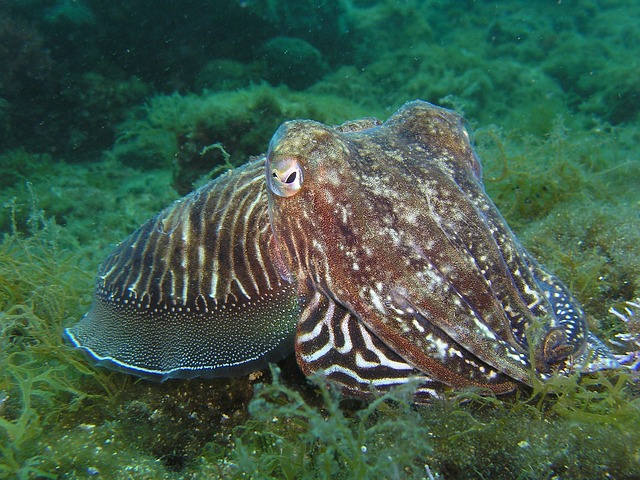Squid Facts
Below are some of the facts about Squid:
- Squids are marine organisms which completes their life cycle in the oceans. They are characterized by large eyes, elongated bodies, and two tentacles and eight arms. They have a mantle and distinct head. They are invertebrates.
- Squids have astonishingly big eye balls. Some which are big sized, have eye balls as big as 10.5 inches.
- The eye balls in humans and other organisms have a jelly like fluid inside, which gives the ball its shape. In squids there is no jelly like filler inside the balls, and instead they have water filed eye balls. Once the organism dies, the water inside the eyeball leaks out thereby deflating the eye and losing its shape.
- The squid females are bigger and longer than the males. The female is double by size and almost 10 feet longer than the male.
- Squids use their suckers to fight back when attacked. There are serrated rings in the suckers, and when the squid retaliates an attack, it uses the suckers to inflict round circular wounds on the predator. This round wound leaves an ugly battle mark.
- Sperm whales attack squids and gobbles up squids in masses. Strangely 3.6 million squids are eaten by sperm whales across the world in all oceans daily. This accounts for 131 million squids devoured by these whales annually.
- Squids are highly devoured by humans as a much preferred seafood item.
- The highest length of the giant squid as reported till date is 43 feet.
- The mouth of a squid consists of a radula, which acts like the tongue. The radula consists of denticles in 7 rows. The denticles are like tooth, pointed and sharp, and angled backwards, and the beak at the mouth opening guards the radula.
- A very strange fact about squids is that, there is only one species of squid in the whole world.
- Scientists have taken 43 specimens of the species from various parts of the world’s oceans, and tested them. All belongs to the same species, all are identical, and this fact astonished researchers, that the organism has such a narrow gene pool. This is quite absurd, and yet true that it has no genetic diversity.
- Squids can regenerate their tentacles. Scientists came to know this when a giant squid was found dead on a Canadian coast in 1968. That squid had a regenerated tentacle which was not the same size and length as other normal tentacles, and also the suckers on the tentacle differed from the normal pattern.
